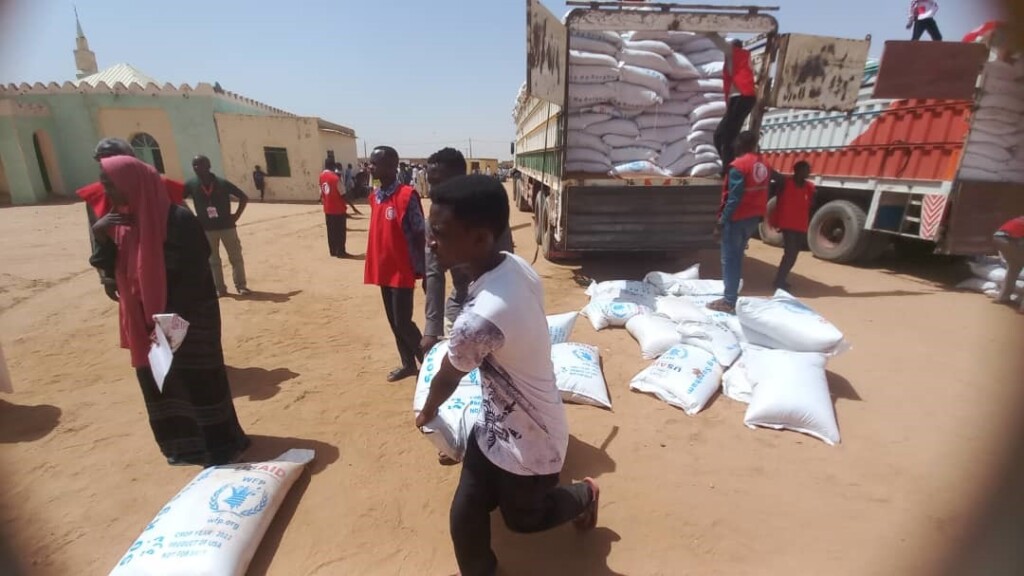Chad-Sudan border crossing challenges hamper humanitarian efforts

WFP distributing emergency support in Omdurman (File photo: WFP / Sudanese Red Crescent Society)
With numerous humanitarian agencies and organisations reporting the looming famine across Sudan, aid delivery remains severely hampered by obstacles at the El Tina border crossing connecting Chad and North Darfur.
Despite the border reopening, challenging terrain and lengthy travel distances pose significant challenges, particularly with the autumn season approaching.
In a briefing to the UN Security Council (UNSC) on the humanitarian situation in Sudan on Wednesday, Edem Wosornu, director of Operations and Advocacy at the UN Office for the Coordination of Humanitarian Affairs (OCHA), highlighted the ‘catastrophic situation’ and the urgent need to remove aid barriers.
The OCHA director added that safe passage for vulnerable populations needed to be ensured, and communication networks restored, as well as an immediate ceasefire to prevent further loss of life.
Humanitarian workers face formidable access challenges, with convoys unable to safely navigate conflict frontlines and cross-border flows restricted at Chad’s border.
Efforts to deliver aid via the El Fasher road have encountered hurdles, as the paramilitary Rapid Support Forces fear the transport of weapons.
Similarly, the Sudanese Armed Forces refuses to transport aid via Chad’s Adré-West Darfur crossing, citing concerns over potential weapon transport.
The authorities previously agreed to allow 60 trucks to enter through Adré into West Darfur.
The report underscores escalating humanitarian needs in Sudan after more than 11 months of conflict, with a sharp rise in requirements anticipated during the unusual early onset of the dry season from March to September.
“As we approach the one-year anniversary of the conflict, we cannot make clearer the desperation that civilians are facing in Sudan,” stated Wosornu in her address to the UNSC.
Addressing difficulties at the border crossing remains an imperative for aid agencies ensuring timely aid delivery and mitigating the risk of famine.








 and then
and then